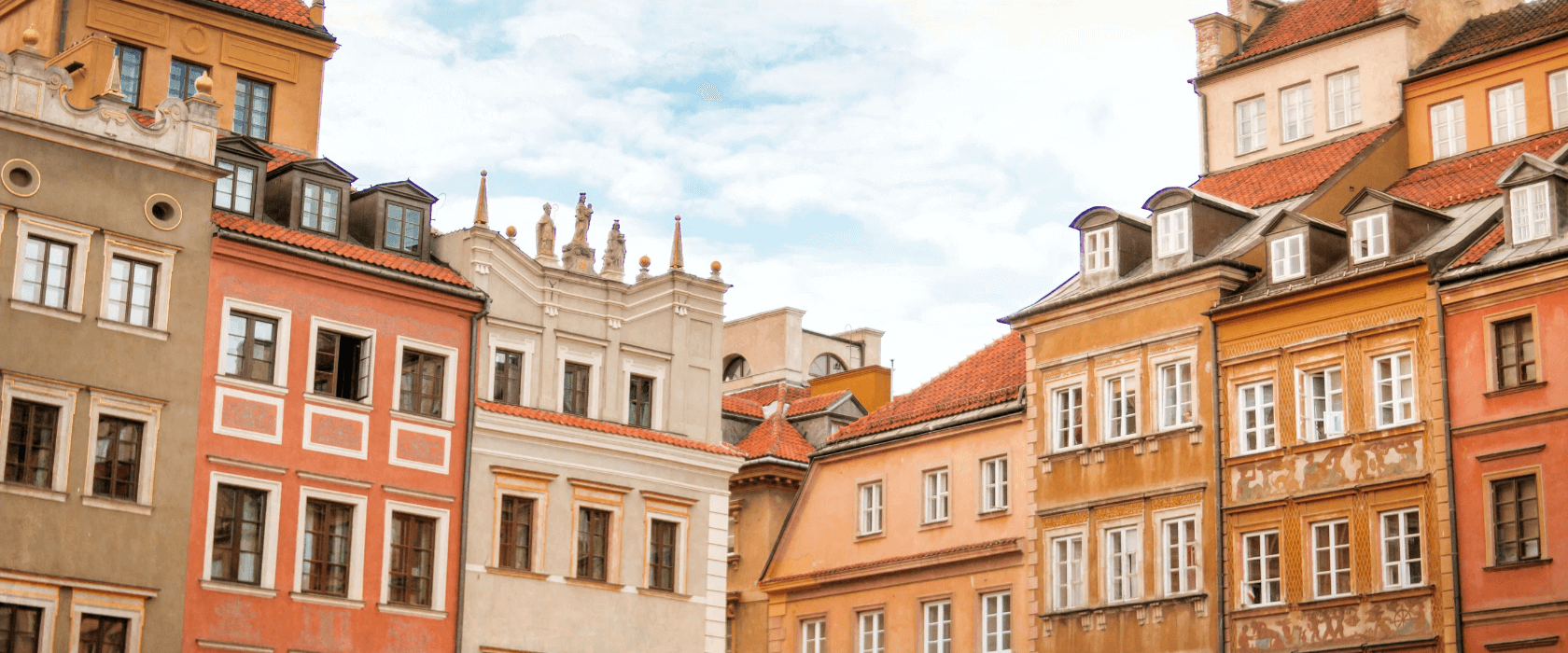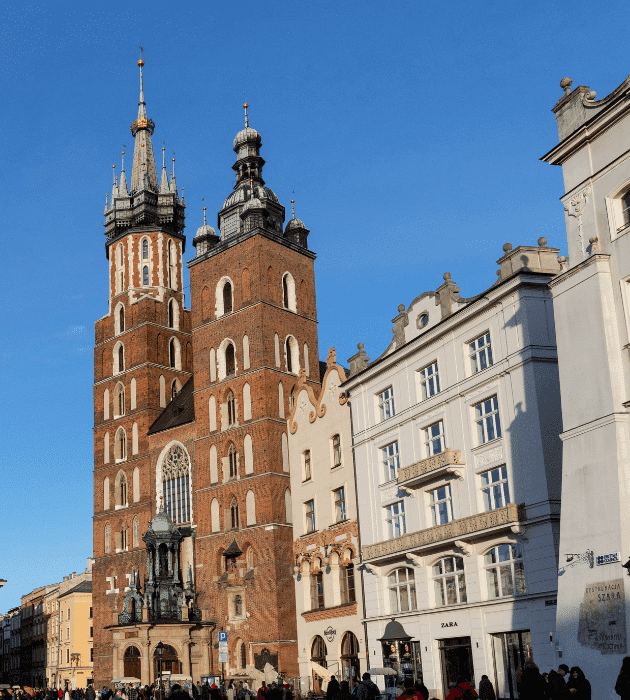-
Popular search terms
A Comprehensive Guide to Studying in:
Poland

Poland is a historic, proud and varied nation that acts as the crossroads between Eastern and Western Europe. Its economy has been one of the fastest-growing in the world since the 1990s, and the country’s internationalization has happened at just as quick a rate. Nowadays, Poland is a modern, forward-thinking nation that attracts a large number of international students from all over the world.
It’s little wonder why Poland is becoming such a popular study destination. Tuition at public universities here is completely free for EU/EEA citizens, while students from the rest of the world will pay substantially less than most other EU countries. Twelve Polish universities made it into the QS World University Ranking 2023, with two of them ranking in the top 300 globally. Throw in a cost of living that is among the lowest in the continent, and you’ve got a winning combination.

Frequently Asked Questions
FAQ
Did You Know? Fun Facts About Poland
- 1 Vodka and Fahrenheit were both invented in Poland.
- 2 When you think of Poland you might think of cold weather, but it’s actually home to a desert, too: the Błędowska Desert.
- 3 Piwnica Świdnicka in Wrocław is thought to be Europe’s oldest restaurant. It opened in 1273.
- 4 Some of the most famous Polish people of all time include Marie Curie, Lech Walesa, Pope John Paul II, and Nicolaus Copernicus.
- 5 Higher education is free for Polish and EU citizens, and heavily discounted for students from the rest of the world.
Which Visas & permits do i need in Poland
Whether or not you need a student visa to enter Poland depends largely on your country of citizenship. If you’re an EU/EEA citizen, you won’t need a student visa to enter Poland. However, if you’re planning on staying for more than three months then you’ll need to register your stay in Poland at the Voivodship (Provincial) Office. You can find where the 16 Voivodship Offices are located right here.
If you’re from outside the EU then you’ll need a student visa to study in Poland. To apply for one you’ll have to book an appointment with the Polish embassy in your home country. A list of those can be found on the Polish government website. As part of your application, you’ll need a passport-sized photo, health insurance, proof you have the finances to support yourself during your time in Poland, and documents confirming your university admission.
You can find out more information about visas and permits on the Polish government website for international students.
Banking in Poland
To open a bank account in Poland, you’ll typically need an identity card/passport and proof of residence in Poland as a minimum. That means you won’t be able to open an account before moving to the country, although many banks (such as Bank Millennium) will allow you to open an account without having to visit a branch – as long as you have your residency documents.
Banks in Poland’s main cities are likely to have English-speaking staff who can guide you through the process of opening an account. NG Bank and PKO Bank are two examples of banks with English-language websites and expat-friendly account options.
What do I need to know about healthcare in Poland
The healthcare available to international students in Poland depends on your country of residence. Students from countries within the EU/EEA are entitled to free state healthcare in Poland, provided they are covered by the national health service in their home country. You’ll typically need to show your European Health Insurance Card (EHIC) to access healthcare services in Poland.
Students from outside the EU/EEA should source private health insurance that covers them for the duration of their stay in Poland. This is doubly important as it also forms part of the visa application for international students.
Housing options for students in Poland
You’ll probably find that the cost of living in Poland is significantly lower than in much of Europe. As a guide, you can expect to pay between EUR€100 and €200 for a room in shared university accommodation. To rent your own apartment in a major city, you can expect to pay an average of around EUR€400.
You can normally find options for shared university accommodation on your university website. Some of the most popular online marketplaces for private rentals include OLx, Gratka, and Otodom.
What are the public transport options in Poland
Poland’s major cities are well-served by public transport. A single ticket will cost less than EUR€1, while a monthly ticket is likely to cost around €20.
You’ll typically find a mixture of buses and trams in most Polish cities, though the capital Warsaw is also home to a metro system. For travel between cities, Poland is also well-served by an extensive train network, which includes a number of high-speed rail lines.
How much does a Big Mac cost in Poland
The Big Mac Index was invented by The Economist as an informal way of measuring the purchasing power parity (PPP) between two currencies.
In Poland, the price of a Big Mac from McDonald’s costs PLN16.68. In the United States, a Big Mac costs US$5.15. The implied exchange rate between these two items is 3.24, but the actual exchange rate is 4.65. Therefore, the Polish zloty is undervalued by around 30%.